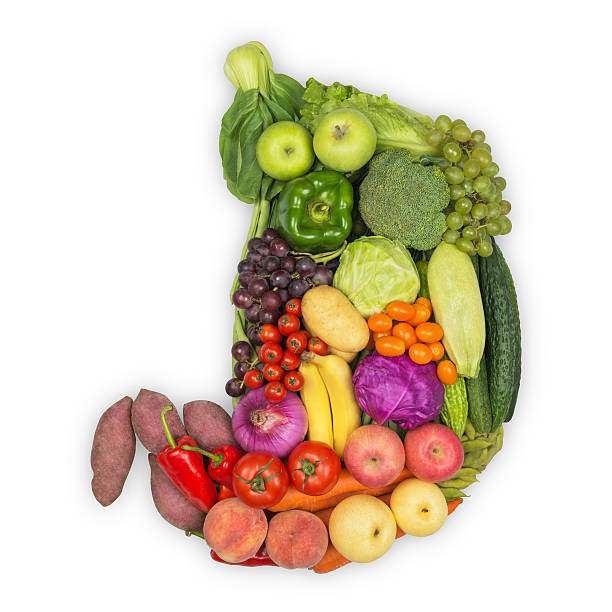22/09/2025
Colorectal cancer (CRC) is a significant health challenge globally, and here in Australia, it remains a serious concern. It’s the third most common cancer worldwide, with nearly a million deaths and over 1.9 million new cases diagnosed in 2022 alone. While statistics can be daunting, the good news is that while some risk factors are unmodifiable, many others are within our control. Understanding these factors and embracing preventative lifestyle choices can empower us to take proactive steps toward better health.
The Unmodifiable and Modifiable Risk Factors
Risk factors for CRC fall into two main categories:
Unmodifiable Factors:
- Family History: A strong family history of CRC or hereditary syndromes like Lynch syndrome significantly increases risk.
- Age: The majority of CRC cases are diagnosed in adults over 50. However, there’s a growing concern about early-onset CRC in those under 50.
- Race: In the US, for instance, Black, American Indian, or Alaskan Native adults have higher rates of new CRC cases.
Modifiable Factors: This is where we can make a real difference! Several lifestyle and behavioural factors are strongly linked to an increased CRC risk:
- Smoking: A clear link exists between smoking and CRC.
- Physical Inactivity & Sedentary Behaviour: A lack of movement is detrimental.
- Alcohol Intake: Increased alcohol consumption raises the risk.
- Dietary Choices:
- Low consumption of fibre and plant-based foods.
- High consumption of red and processed meats.
- Weight: Excess weight and obesity are significant contributors.
- Gut Dysbiosis: An imbalance in our intestinal flora, with a loss of beneficial bacteria and an increase in harmful ones, can play a role.
- Comorbidities: Conditions like type 2 diabetes, inflammatory bowel disease (IBD), and even periodontal (gum) disease can increase risk.
- Environmental Exposures: Proximity to industrial complexes, especially those releasing air pollutants, has also been associated with higher CRC odds.
Early-Onset CRC: A Growing Concern
While CRC traditionally affects those over 50, we’re seeing a worrying rise in early-onset CRC in younger individuals, often diagnosed at an advanced stage. This trend has led to changes in screening guidelines, with the US Preventive Services Task Force now recommending average-risk adults begin screening at 45. In Australia, it’s always best to discuss your individual screening needs with your GP.
Research into early-onset CRC is ongoing, aiming to identify specific risk factors and characteristics that differentiate it from late-onset cases. Some studies have already highlighted links to family history, high blood fat concentration, obesity, and high alcohol consumption in younger patients.
Empowering Prevention Through Lifestyle
The good news is that we can actively lower our risk! Beyond crucial preventative screenings (which your GP can guide you on), here are key lifestyle-based approaches:
- Embrace a Nutrient-Dense Diet: Focus on a diet rich in fruits, vegetables, and whole grains. Limit animal fats, especially red and processed meats. A large study involving over three million participants found that plant-based diets were significantly associated with a reduced risk of various digestive system cancers, including a 24% reduction for colorectal cancer specifically. 🥦
- Increase Physical Activity: Get moving! Regular exercise is a powerful protective factor. 🏃♀️
- Maintain a Healthy Weight: Achieving and maintaining a healthy weight reduces your risk significantly.
- Limit Alcohol Consumption: Moderating alcohol intake is vital.
- Boost Fibre Intake: Soluble and insoluble fibre are crucial for gut health. Think legumes, whole grains, and plenty of produce.
- Quit Smoking: If you smoke, stopping is one of the most impactful health decisions you can make. 🚭
The Naturopathic Medicine Approach
Within the naturopathic medicine framework, the emphasis is on addressing the root causes of disease and promoting holistic health. Practitioners work collaboratively with patients to develop personalised therapeutic strategies. This often involves foundational interventions for gut balance and health, such as tailored nutrition and movement plans. These approaches are not only low-risk but also aim to optimise overall health and wellness, potentially aiding in cancer prevention.
Take Control of Your Health
Understanding your risk factors and taking proactive steps through lifestyle modifications can significantly impact your colorectal cancer prevention journey. Don’t wait – have a conversation with your healthcare provider about your individual risk profile and screening recommendations.
Ready to explore personalised lifestyle interventions that support gut health and help address cancer risk?


